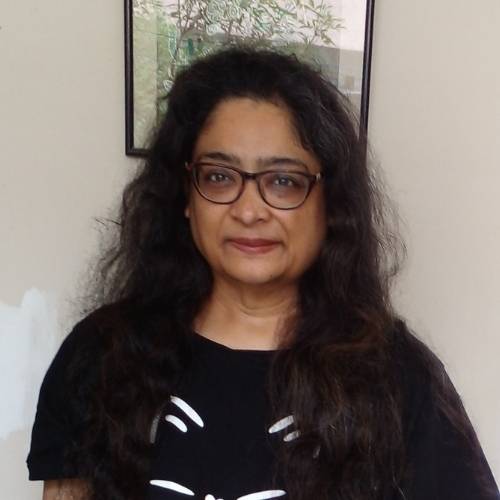Retiring Room at Chandrapur Station No. of Words: Over 2000
Nathan’s Narrative – 1
After exchanging pleasantries and downing two whiskies, my host for the evening, Anil Kapoor, scion of the rising Shivalik Tyres, a dealership headquartered in Chandigarh and spread across from Dehradun to Jodhpur, settled down comfortably on the Chesterfield sofa in his living room at the company’s guest house at Jodhpur, and proceeded to tell me his extraordinary story. I cannot forget his every word and gesture, even after 35 years have passed.
Let me introduce myself. I am Nathan, a Madras-born Tamilian working as a technical service manager in a multinational tyre company in Calcutta. In plain words, I am a claim adjuster for failed tyres under warranty returned by customers under complaint. In the tyre business, after-sales service is paramount. If a tyre fails prematurely and becomes unserviceable, either due to a manufacturing defect or service abuse, the tyre company examines it and replaces it with a new tyre sold under a discount, depending on the wear of the tyre. Fortunately, the level of tyre returns is usually small, and the process is smooth. In principle, damage cannot be undone but can be mitigated. As a large dealer, Shivalik Tyres had accumulated a lot of tyres, which were presented for my inspection that morning. The day’s work done, I was set to catch the night train back when the young proprietor invited me for a round of drinks and snacks before my departure.
You can visualise Anil Kapoor as a handsome Raj Kapoor-type youth, not headed to Bombay to make a future but to live it up there. He has dark brown eyes set in an oval face, a straight nose, defined cheekbones, oblique and pointed ears, and a glowing wheatish skin colour. He completed his bachelor’s degree in an easy discipline with a first class that he obtained with minimum effort. His father, Pritam Lal Kapoor, died recently, leaving him responsible for running Shivalik Tyres and looking after his family. The two elder brothers, partners, pre-deceased Pritam Lal in the early 1980s, leaving no issues. The senior Kapoor and his elder brothers fled Sialkot after the partition riots and settled in Chandigarh in the 1950s. Through hard work and networking, the brothers built a tyre dealership representing the local multinational tyre companies in Calcutta and Bombay in the agricultural heartlands of Punjab and Rajasthan. The 1960s were a time of acute tyre shortages in the country, and it used to be said that a couple of nylon bias rear truck tyres could be the equivalent of a fat dowry. The middle class would enrol as members of cooperative societies and avail themselves of a pair of bicycle tyres, which were distributed every six months. Shivalik Tyres grew in leaps and bounds during this period, and the elder brothers were pleased when Pritam Lal joined a multinational tyre company to learn the ropes. This is where the story begins.
Anil Kapoor’s Narrative 1
Anil Kapoor began: “In 1964, Papa was posted to Chandrapur, a 100 km or so away from Jodhpur, to be the regional service representative for Rajasthan, reporting to the regional sales manager in New Delhi. Chandrapur was gaining prominence as the constituency of a rising Rajasthani agricultural baron-turned-politician Mansingh. He had a band of 30 or so faithful members of Parliament and could swing decisions in his direction when it mattered. Consequently, Chandrapur was connected to the rail network with a two-lane track, a railway siding and a bi-weekly four-wagon passenger train service from Jodhpur. As might be imagined, the trains carried an average load of 3-5 passengers and 10 tonnes of agricultural produce, the principal crop being bajra (outwards and white goods inwards) on each journey. The station itself was nondescript, with a cabin for the station master and attendant, a service hall, a waiting room and a retiring room. The retiring room had a large front door opening towards the platform and a window on the opposite side wall overlooking the yard. Beyond the yard was a clump of various trees, the vestiges of a wooded forest interrupted by modernity. The narrow, tarred road left of one end of the platform led to the town.
Chandrapur consisted of two rows of six houses on opposite sides of an avenue, each with a side yard for horse-drawn carriages and a backyard for wells and agricultural fields. Over time, the arable land had been divided, mortgaged, acquired, lain fallow or enlarged according to the circumstances of its owners. The town had a sarpanch office, a community hall-cum-post-office and lately, a stocking point leased out to the tyre company for storage and sale of tyres for the area.
On arrival, Papa made a round of the area to set up his lodgings. He contacted each of the households enquiring whether they had an outhouse available for paying guests. Many had, but they refused to take him in. He gave up and returned, dejected and slumped upon the sole bench on the station platform.
The station master, Jai Singh, who was keeping a discreet watch on Pritam Lal Kapoor’s activities, sent tea and snacks via the porter-cum-handyman, Bhola Ram, which the young man gratefully devoured. Jai Singh then approached Kapoor and listened to his predicament. He advised Kapoor, ‘You are a handsome Punjabi youth, and no traditional Rajasthani household will take you on as a paying guest, especially if they have young girls. Considering that your job involves frequent train travel within Rajasthan, I can offer a solution. You may occupy the retiring room at the station, paying a daily charge as an incoming passenger. You may partake of food in other big stations when you travel, but I can make separate arrangements locally for your meals in this town, and Bhola Ram will bring the carrier to the retiring room. You may add your bedding and furniture to the cot and other amenities already provided,’ he said graciously.
Of course, Papa snapped up the offer and thus began what would become his three-year boarding and lodging in the Rajasthani heartland. Every time he returned after a trip, the station master would duly note the particulars of his train ticket under a different name to comply with the retiring room rules. Papa steadily picked up orders from the neighbouring towns, and his bosses were quite satisfied with his performance, confirming that he would be on the job in due course. The 1965 war with Pakistan came and went. Chandrapur was a little affected by it, but the tyre orders skyrocketed in the border areas, and he was happy. He bought a transistor radio from Meena Bazaar and would listen to the geetmala programs of film songs every evening. He said his favourite was the Lata Mangeshkar popular hit from the film ‘Guide.’
Today, again, I have the desire to live.
I intend to die again today.
I’m not in my control.
If my heart is somewhere, I’m elsewhere.
Along with the Filmfare magazine matte photographs of the heroine Waheeda Rehman in a teal-coloured saree cavorting on a country cart, he would recall the scenes in the movie and sing the songs as he bathed. He thought the actual colour of her saree in the movie was Robin Blue. Those were the halcyon days. Then, one day, Papa packed up his bags and departed suddenly. I have always wondered why. In time, he resigned from his job, returned to Chandigarh to run the family business, got married, and, in due course, my younger sister and I came along. He passed away last month.
Nathan’s Narrative -2
Anil Kapoor rose and took a framed family photograph from the mantelpiece to show me. In the picture, the father and son are seated in the front, and the mother and daughter are standing behind. A stool with many flowers in a vase was positioned as a backdrop. “We are a ‘We two, ours two’ family,” he said. He then plied me with drinks and snacks replenished like clockwork by the bearer in the guesthouse. I made polite enquiries about his plans, but Anil was not finished.
Anil Kapoor’s Narrative -2
Last week, I had to come for a business meeting here. I wanted to visit Chandrapur to see the sights of my Papa’s youth. I caught the tri-weekly fast passenger and arrived at Chandrapur on Wednesday morning. The station was what I imagined all these years. There was fresh paint, bright lights and billboards, which had been recently added. A mounted colour television set was blaring out the Kavita Krishnamurthy song, ‘Hawa Hawaii’ from the film Mr India, with the glittering Sridevi in an electrifying golden costume. Glossy cine magazines on display at the book kiosk featured her on their cover pages. The song went
“I am the princess of dreams
My effect is felt in every heart…
I have come to strike you with my lightning
I’m called Hawa Hawaii (stormy wind).”
At the station, an old Bhola Ram was delighted to meet the Kapoor Chota Sahib. He installed me in the same retiring room Papa had occupied many years ago. As the return train was due to leave the next day, I had to spend the night there. The retiring room had a colour television, a storage almirah, and a cot. Bhola Ram put a fresh mattress there for my use.
I took a tour of the town in a tuk-tuk that was available for hire outside the station. Nothing much appeared to have changed in the town except that the avenue had been extended to connect with the state highway leading to Barmer. Instead of twelve houses, there are twenty-four now, mainly due to property subdivision. Instead of horse-drawn carriages, tractor-trailers and sedans were parked in the sideyards. The tyre stocking point was dilapidated, with the company name board dangling precariously. I learnt from the sarpanch that owing to litigation involving the landlord and the lessor, the premises were under a civil court order. I vowed that I would never allow Shivalik Tyres to hang like this. I returned to the retiring room in the evening somewhat depressed, had supper and called it a day.
As I tossed and turned in bed at night, I heard the sounds of cicadas and other nightlife in the jungle. I caught sight of an engraving on the wall on one side of the bed. It was an embossed sign of two hearts with an arrow through them and the initials PLK and SM at the ends. The artist, reclining on the bed, repeatedly scratched the sign with a sharp, metallic point. Who carved it there, I wondered.
The next morning, I was ready ten minutes before the train’s departure. Bhola Ram placed my suitcase on the train, dusted my seat, and awaited my boarding. The only other passengers to arrive at the station were two women accompanied by a liveried footman/attendant. They came in an air-conditioned white Contessa car, and the attendant loaded their luggage onto the train.
As I emerged from the retiring room, I saw the older lady dressed in a red and green classical Rajput lehnga and choli set, her head covered with a dupatta, pass by. I noted that she wore golden earrings. Her hands were hennaed and covered with gold bangles, but she did not wear a bindi or sindoor. She had a regal bearing and swept past me but momentarily stopped to hail the young woman behind her. “Payal!” she called out. “Coming, ma!” Payal replied.
Payal was a tall, pretty, slim young woman with straight black hair. She wore a Punjabi kudi Patiala suit and carried a Sony Walkman with earphones. I was flabbergasted that she looked like the spitting image of myself in the female version, with a similar complexion, face, eyes, nose, and hair matched to a tee. To cap it all, she had the same oblique and triangular ear shape, which her dangling locks of hair could not wholly conceal – a Kapoor family feature. I wondered if two strangers could look alike.
The same idea must have struck the women when our eyes met, and for a moment, we – mother, daughter and self – stared at each other. The mother exhaled hard. I thought she disapproved of me at my stares at her daughter. They boarded the next compartment.
I also boarded the train. Bhola Ram started to say something, but he hesitated. I handed him two extensive notes and thanked him for all the help. He was not effusive as usual, and he alighted. The train started.
It was only after some considerable time that the pieces of the puzzle fell into place. The women must be Papa’s paramour and their daughter, respectively, I reasoned. It was now clear why Papa had rapidly escaped from his lodgings at Chandrapur’s retiring room years ago.
“Anil paused for dramatic effect and said”, ‘Now, I know.’ Bechaara bhaag gaya! (The unfortunate man ran away.) He flung out his arms with a flourish and laughed raucously.
Nathan’s Narrative -3
Anil Kapoor’s words saddened me. After a pause, I asked him, “Did you chat with them or find out anything about them from the travelling ticket examiner?”
“No,” he said. “Aren’t you curious to meet them? Do you know where they are now? I asked.
“Dunno.” “More whiskey?” he asked me. He must have sensed my disapproval of his apathy in pursuing the matter to its logical conclusion.
I made some polite noises and took his leave. I did not have to meet with Anil for over a year, and he dropped out of my mind.
One day, a letter arrived by speed post. The gold-and-red wedding invitation card announced, ‘Payal weds Aditya.’ The Kapoor family cordially invites you to the wedding ceremony of Payal (daughter of Late Pritam Lal Kapoor and Mrs. Sonam Mansingh) with Aditya Nayar. ( Son of …). As I inserted the card back into its envelope, a note from Anil Kapoor fell out, and I read it.
“Dear Nathan ji,
I will make all the arrangements for your travel and stay for the wedding. As our Guruji, I request you to give away the bride at kanyadaan and bless the couple. I will talk to you tomorrow.” My eyes misted. It is a rare man who can set right a past wrong as a moral duty and bestow honour on a stranger who nudged him in the right direction when he was confused. In relationships, as in product warranties, damage cannot be undone but can be mitigated.
xxx











